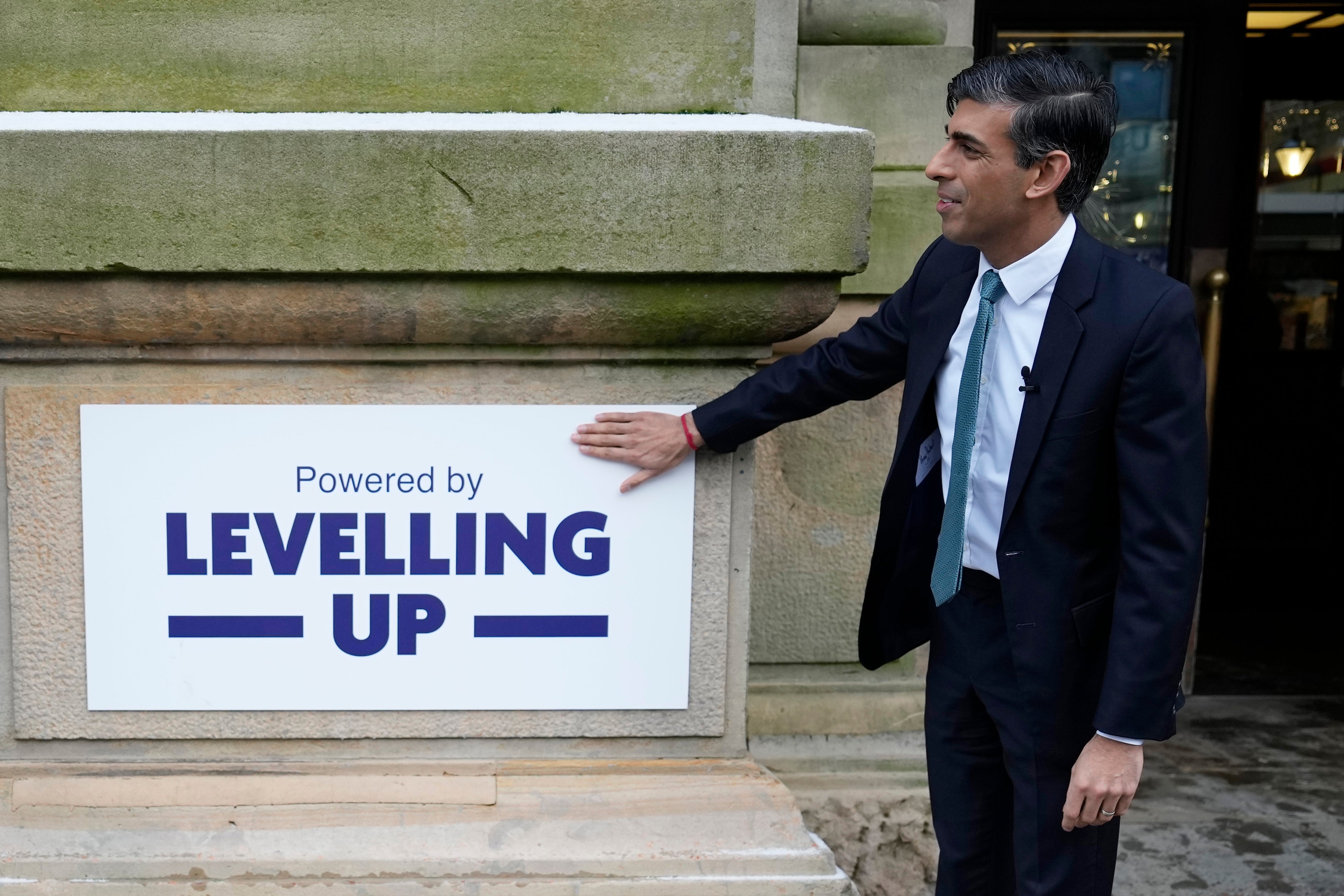Levelling up’s winners and losers
Even as an exercise in winning favour with voters, the policy seems shaky, says Sean O’Grady


Ministers have just disbursed some £2bn in the latest tranche of funding for levelling-up projects, as part of the overall £4.8bn programme. Rishi Sunak has promised that the spending will be “transformative”. The details of the announcement have been met with mixed reviews.
Who is going to get the money?
A variety of schemes, including a northern Eden Project in Morecambe worth £50m, a new primates and conservation research centre at Twycross Zoo worth £19m, and converting the Old Town Hall in Whithorn, Galloway into a social enterprise training centre for £300,000. The money is scattered far and wide.
Is it fair?
Critics say the bulk of the spending is going to London and the South East. Ministers argue that, adjusted for population, the areas that do best are the North West, the North East, and Wales. Plus there are undoubtedly pockets of poverty in the South – some of the most deprived boroughs in the country are in London.
Is it ‘pork barrel’ politics – bribes to vote Tory?
Ever since Boris Johnson championed the policy, it has had a whiff of pork about it. The fact that some £19m is being spent on improving a high street in the prime minister’s own constituency has raised some eyebrows. There is even a grant of £230,000 to help keep a pub alive in the same North Yorkshire constituency. Indeed, the plight of The Countryman’s Inn in Hunton is a case in point. The village community group has purchased its local pub using cash from the community ownership fund. It will now be able to offer hearty meals and tasty ales to the people of Wensleydale and beyond, and not all of them are by any means rich. However, there are very many pubs throughout the country threatened with closure, and they are not going to receive a penny.
It highlights the seemingly arbitrary distribution of the “goodies”. Why, let us ask, should £5.1m be given to build new women’s changing rooms in 20 rugby clubs across Northern Ireland – a great idea – but nothing to improve the equivalent facilities in England, Wales or Scotland?
One might also ask why a solidly Labour city such as Leicester, with no chance of a Tory getting a seat, is doing relatively well out of the exercise, whereas Liverpool and Bradford – equally hostile to the Conservatives – have missed out again. There may be some political bias in the allocations, but it isn’t consistent.
What about the red wall?
It seems that Tory MPs and others in the Labour heartlands who turned to Johnson in 2019 are chastened and reportedly angry at missing out. “There are some really wealthy areas on the list,” said one. “It looks awful.” It cannot be entirely an exercise in party political favouritism if elected Tory politicians in marginal seats are complaining, but perhaps they are just hoping for more. None is more outspoken than Andy Street, the Conservative mayor of the West Midlands region: “Fundamentally, this episode is just another example as to why Whitehall’s bidding and begging-bowl culture is broken, and the sooner we can decentralise and move to proper fiscal devolution the better.”
Who are the losers?
It is a rule of political life that for every beneficiary of some official scheme – tax credits, a new university, an upgraded rail line – there will be many others who thereby feel hard done by. If residents in Morecambe and Cleethorpes are delighted at the largesse displayed by Michael Gove, it’s equally likely that folk in Blackpool and Skegness will feel slighted.
What does the opposition say?
Nationalists in Scotland and Wales, as well as Labour and Tory regional mayors such as Mr Street, resent the way in which ministers and civil servants in London make the final call as to who gets the cash. For the SNP, it is another betrayal of devolution. Welsh politicians resent part of their allocation being spent on HS2, which doesn't go to Wales. Labour’s Lisa Nandy has been scathing about the competitive, demeaning nature of the bidding process: “It is time to end this Hunger Games-style contest, where communities are pitted against one another and Whitehall ministers pick winners and losers.”
Will levelling up even work?
As a modern iteration of what was once known as “regional policy”, perhaps not. Mr Sunak insists that the projects being funded will attract private-sector investment, but that is not guaranteed, and the money might not yield much except for a little civic pride. Regenerating one seaside town might simply attract visitors away from another, and much of the money is merely reallocated from other budgets, such as for transport or grants to devolved administrations. That might be said of the £3.3m being spent on electric-vehicle charging points in Northern Ireland.
Even the total sum, £4.8bn, is tiny in relation to Britain’s £2,500bn GDP, and is far less than the 30 per cent overall reduction in central government’s support to local authorities since 2010, which was driven by austerity. Politically and economically, at a time of severe pressure on the public finances, levelling up feels tokenistic and random.
Politically, few of these laudable projects will be completed by the general election, by which time voters may anyway have concluded that repaved town centres aren’t much use if they haven’t the cash to spend in them.
A more rational approach might have been to recognise that some poor people live in richer areas, such as Kensington and Chelsea, while some rich people live in poorer places, such as Newcastle, and to focus the process on demographics rather than geography. But perhaps that would be too socialistic for this government.






Join our commenting forum
Join thought-provoking conversations, follow other Independent readers and see their replies
Comments